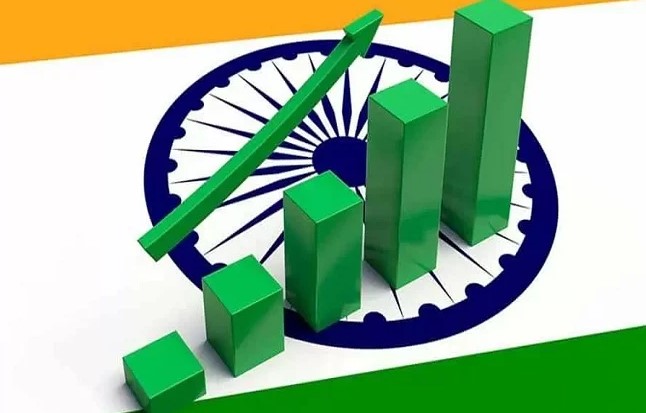
Ability of the country’s economy to recover from external shocks
- April 13, 2024
- 0
What message does the Indian economy’s ability to sustain growth despite external and internal challenges convey? Apart from the global demand for goods and services, the Indian economy is largely affected by five major challenges, namely low or irregular rainfall, sharp rise in oil prices, political or policy uncertainty, macroeconomic instability, including financial sector instability. These also include the sudden outflow of capital inflows and increase in the cost of foreign exchange as a result of global risk aversion.
However, the Indian economy is relatively more capable of facing all these challenges. Firstly, the agricultural sector is less affected by regularly appearing deficiencies or irregularities in rainfall. This is because there is diversity in crops and expansion in the irrigation network, as well as better systems providing accurate weather information, which allows timely policy action in case of any emergency. And because of this, our efficiency related to agricultural growth and productivity is also high.
Secondly, the rise in oil prices does not have much impact on the Indian economy. The impact of oil in gross domestic product or GDP (oil consumption per unit of GDP) is continuously declining. This trend is likely to continue as the country moves towards renewable energy and with increasing economic prosperity, the economy is giving more priority to the service sector so that activities based on diesel and petrol can reduce.
The third thing is that India’s democracy is now maturing and the voters themselves are giving a decisive mandate. This itself confirmed the same trend that now the days of hung parliament, hung assemblies or complex alliances are over. This is strengthening the perception of political and policy stability in the country and will create a more favorable environment for long-term investors.
Fourth, macro-economic stability and a safe and efficient financial sector are critical for growth. Bharat has performed well on both the fronts. The banking sector has completely emerged from the shadow of stressed balance sheets for a decade. Amid monitoring from the banking regulator, RBI and the government, the sector has supported economic growth by achieving double-digit credit growth. The non-banking sectors of the financial sector have stabilized after a short period of crisis last year.
Consumer finance is an important segment of the economy which is becoming increasingly prosperous and inclusive. It is important to put in place concrete risk management solutions to ensure that growth is not hampered by prioritizing consumer spending and private consumption.
It is not right to consider the economy immune from all kinds of challenges and extreme events, whether they come singly or in combination. This means that external factors can affect the economy but now the economy can survive more robustly to small-scale shocks than before.
👇 Please Note 👇
Thank you for reading our article!
If you don’t received industries updates, News & our daily articles
please Whatsapp your Wapp No. or V Card on 8278298592, your number will be added in our broadcasting list.


































































